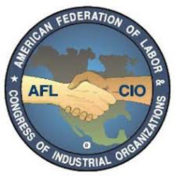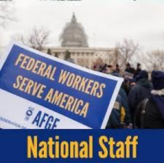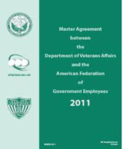
AFGE was founded on October 17, 1932 by local unions loyal to the American Federation of Labor (AFL) and left the National Federation of Federal Employees (NFFE) when that union became independent of the AFL (NFFE in 1998 became part of the IAMAW, which is affiliated with the AFL-CIO). At AFGE's national convention in 1997, the delegates took the importance of affiliation one step further, voting for each of its 1,100 locals to affiliate with their AFL-CIO state federations. This makes AFGE one of the few nationally affiliated unions to have all of its locals affiliated at the state level. National President J. David Cox and National Vice President for Women and Fair Practices Augusta Y. Thomas are active participants in the AFL-CIO, working to enhance and energize the labor movement. AFGE takes seriously its responsibility to help provide good government services while ensuring that government workers are treated fairly and with dignity. The union supports a meaningful transformation of the federal workplace to improve the way services and benefits are delivered to the American public.
Born in the depths of the Great Depression, AFGE formed in 1932 at the point where elected officials had crippled the civil service. Wage cuts and furloughs were on the rise, and promotions and leave privileges were hard to come by. Back then, federal employees lacked many of the basic rights they enjoy today like health insurance, overtime pay, and weekends without work. Over the following two decades, new AFGE chapters began to pop up across the country, bringing with it greater leverage to represent their members. In 1945, after years of pay freezes, AFGE secured a near-16 percent pay increase with the passage of the Federal Pay Act—the largest single pay increase for federal employees. In the 1950s, AFGE fought for and won the introduction of within-grade pay increases, transportation allowances for transferred workers, and payment for accrued annual leave, overtime, night, and holiday work. But even up to the 1960s, AFGE didn’t have true bargaining rights. After years of work, President Kennedy in 1962 proclaimed that “the right of federal employees to deal collectively with the federal departments and agencies in which they are employed should be protected” in executive order 10988, establishing for the first time, the right of federal employees to exercise their voice in the workplace.
In the half-century since winning real bargaining rights, AFGE has extended the dignity of a union contract to more than 700,000 government employees in thousands of federal and DC government facilities across the country. Today, AFGE stands as one of the largest and most influential forces for work, civil, and human rights in the world. Our union began with a simple belief—that together, government employees from all across America can build a better workplace and country. AFGE’s story is America’s story, and the next chapter will be written by all of us—including you!





As a federal employee labor union, AFGE is not afforded the same full scope collective bargaining rights as workers in the private sector. For this reason, in addition to negotiating working conditions at the bargaining table, AFGE coordinates a full-scale legislative and political action program to monitor issues that impact the government workforce. At the VA, AFGE individual unions are represented at the national level for national issues by the National VA Council (NVAC). NVAC promotes the unity of all VA locals. NVAC addresses contract enforcement of the national agreement at the VACO level.
Core values: ensure that justice, equality, dignity, and fairness are the cornerstones of our organization—promote quality care and service for veterans, ensure a safe and healthy workplace, empower and protect democratic decision-making, value and respect diversity and inclusion, demonstrate integrity and trustworthiness, and promote solidarity.
The strategic goals for NVAC and VA unions are: maintaining and increasing our membership, building a grassroots movement of members and allies to support politicians and advocate policies friendly to AFGE and working families; representation—effectively grieve, arbitrate, litigate, bargain, lobby, and organize through well trained and knowledgeable AFGE personnel, training and educating union leaders and members on issues that affect their employment, and communicating useful and timely information that will allow us to move our agenda forward by creating a positive attitude about federal employees and what they do.
AFGE 1594: We are a certified (FLRA) union under VBA and represent professional and nonprofessional positions hired by and assigned to the St. Petersburg, FL VA Regional Office, and suboffices/locations.



